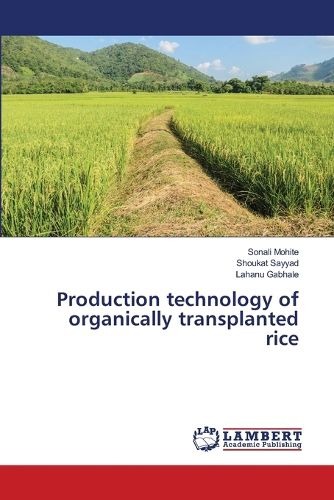Readings Newsletter
Become a Readings Member to make your shopping experience even easier.
Sign in or sign up for free!
You’re not far away from qualifying for FREE standard shipping within Australia
You’ve qualified for FREE standard shipping within Australia
The cart is loading…






In India, rice is the most important food crop covering about one -fourth of the total cropped area and providing food to about half of the Indian population. The organic movement in India has its origin in the work of Howard (Howard, 1940). The key factors affecting consumer demand for organic food is the health consciousness and the willingness of the public to pay for the high-priced produce. Organic farming is way of conserving the soil, maintaining its fertility, protecting soil flora and fauna diversity thus preventing pollution of ground water, lakes and rivers. Animal wastes such as dung, urine, green manure, bio-fertilizers, wastes from agro and food based industries are some of the potential sources of nutrients in organic farming. Green manuring, which is of organic origin, helps to keep soil quality and fertility enhancement as a whole meeting a part of nutrient need of crops. Humic substances are readily found in soils and influence plant growth both directly and indirectly.
$9.00 standard shipping within Australia
FREE standard shipping within Australia for orders over $100.00
Express & International shipping calculated at checkout
In India, rice is the most important food crop covering about one -fourth of the total cropped area and providing food to about half of the Indian population. The organic movement in India has its origin in the work of Howard (Howard, 1940). The key factors affecting consumer demand for organic food is the health consciousness and the willingness of the public to pay for the high-priced produce. Organic farming is way of conserving the soil, maintaining its fertility, protecting soil flora and fauna diversity thus preventing pollution of ground water, lakes and rivers. Animal wastes such as dung, urine, green manure, bio-fertilizers, wastes from agro and food based industries are some of the potential sources of nutrients in organic farming. Green manuring, which is of organic origin, helps to keep soil quality and fertility enhancement as a whole meeting a part of nutrient need of crops. Humic substances are readily found in soils and influence plant growth both directly and indirectly.